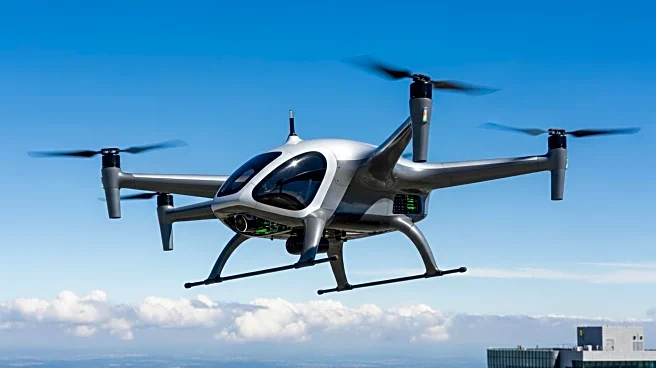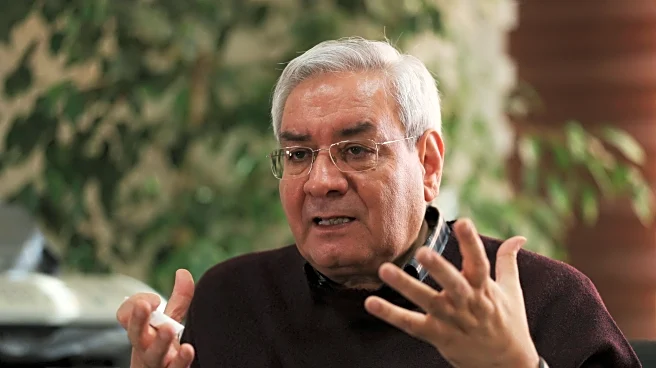What is the story about?
What's Happening?
Rwanda has achieved a significant milestone in aviation with the first public flight of a self-flying passenger drone, the EHang EH216-S. This event, held in early September, was a collaboration between Rwanda's government, China Road and Bridge Corporation (CRBC), and EHang. The drone, a two-seat electric Vertical Take-Off and Landing (eVTOL) aircraft, flew to an altitude of about 100 meters, showcasing Rwanda's commitment to becoming Africa's hub for advanced air mobility. The initiative aims to create cleaner, faster, and more connected cities, reducing reliance on traditional road infrastructure and minimizing carbon emissions.
Why It's Important?
The introduction of self-flying passenger drones in Rwanda represents a significant advancement in urban transportation, potentially transforming how cities manage traffic and pollution. By reducing the need for extensive road networks, these drones can preserve green spaces and lower carbon emissions, contributing to environmental sustainability. Additionally, the technology promises economic benefits through reduced maintenance and fuel costs, aligning with global trends towards electric vehicles. Rwanda's proactive approach positions it as a leader in advanced air mobility, potentially influencing other nations to adopt similar innovations.
What's Next?
While consumer flights are not yet available, the successful demonstration in Kigali indicates readiness for scaling the technology. Rwanda's government is expected to continue fostering a regulatory environment conducive to advanced air mobility, potentially leading to commercial applications. As self-flying drones gain traction globally, Rwanda's early adoption may attract further investment and collaboration, enhancing its role in the aviation sector.
Beyond the Headlines
The deployment of self-flying passenger drones raises questions about regulatory frameworks, safety standards, and public acceptance. As Rwanda navigates these challenges, it may set precedents for other countries considering similar technologies. The initiative also highlights the potential for technological partnerships between African nations and global innovators, fostering economic growth and technological advancement.















